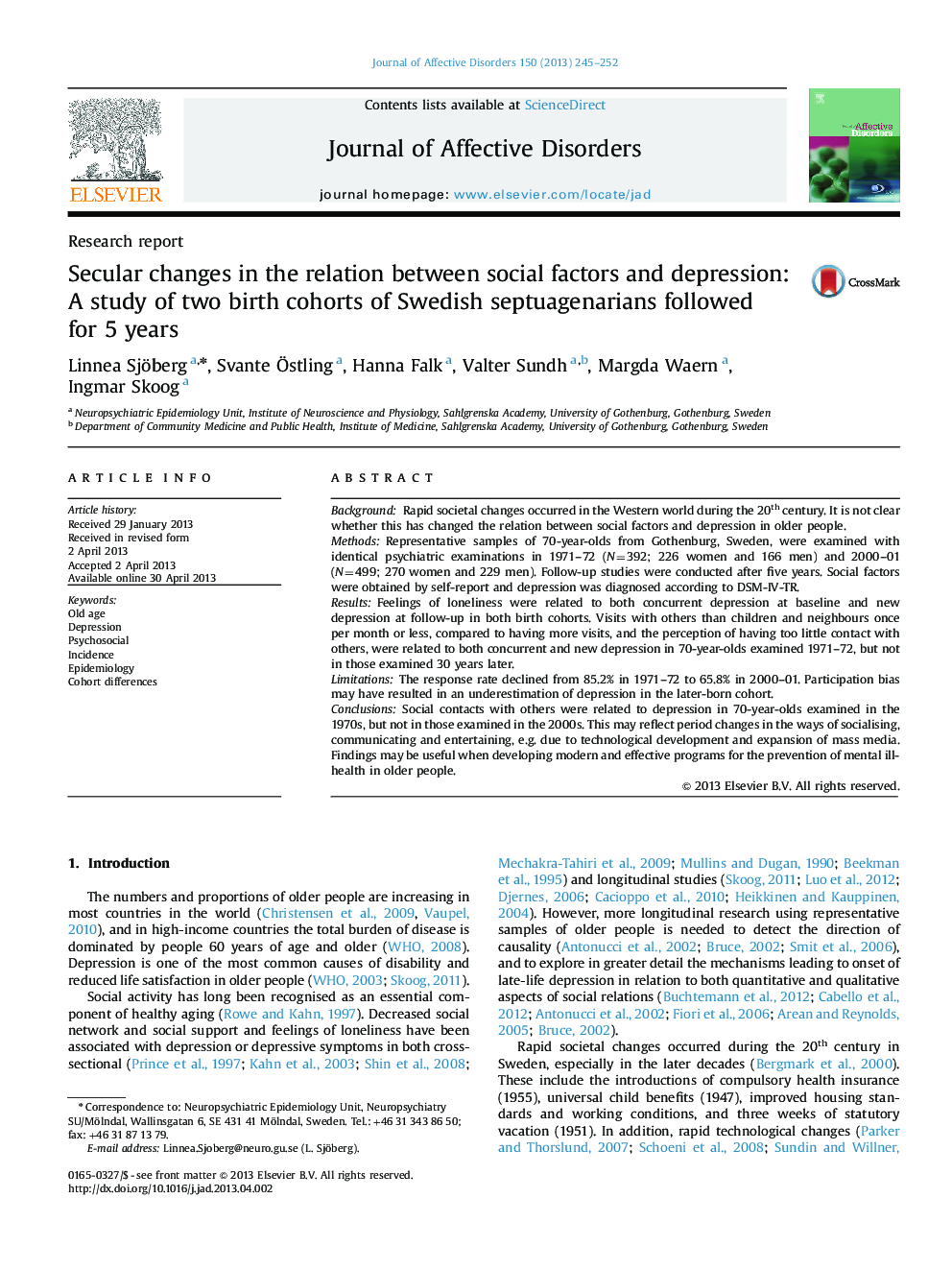| Article ID | Journal | Published Year | Pages | File Type |
|---|---|---|---|---|
| 6234204 | Journal of Affective Disorders | 2013 | 8 Pages |
BackgroundRapid societal changes occurred in the Western world during the 20th century. It is not clear whether this has changed the relation between social factors and depression in older people.MethodsRepresentative samples of 70-year-olds from Gothenburg, Sweden, were examined with identical psychiatric examinations in 1971-72 (N=392; 226 women and 166 men) and 2000-01 (N=499; 270 women and 229 men). Follow-up studies were conducted after five years. Social factors were obtained by self-report and depression was diagnosed according to DSM-IV-TR.ResultsFeelings of loneliness were related to both concurrent depression at baseline and new depression at follow-up in both birth cohorts. Visits with others than children and neighbours once per month or less, compared to having more visits, and the perception of having too little contact with others, were related to both concurrent and new depression in 70-year-olds examined 1971-72, but not in those examined 30 years later.LimitationsThe response rate declined from 85.2% in 1971-72 to 65.8% in 2000-01. Participation bias may have resulted in an underestimation of depression in the later-born cohort.ConclusionsSocial contacts with others were related to depression in 70-year-olds examined in the 1970s, but not in those examined in the 2000s. This may reflect period changes in the ways of socialising, communicating and entertaining, e.g. due to technological development and expansion of mass media. Findings may be useful when developing modern and effective programs for the prevention of mental ill-health in older people.
